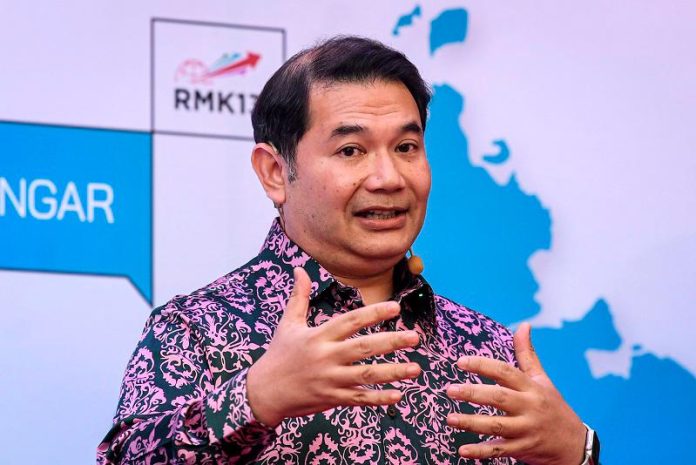KUALA LUMPUR: The government is committed to prioritising enabling policies over direct intervention to drive creativity and growth in key industries for the 13th Malaysia Plan (13MP), Economy Minister Datuk Seri Rafizi Ramli said.
He said the focus would be on fostering a robust ecosystem through policy support, efficiency improvements, talent development and structural incentives to position Malaysia as a high-income nation by 2028 or 2029.
“The government’s role should be to enable and facilitate, allowing industries to leverage their creativity and expand independently, which requires policies that strengthen the overall ecosystem,” said Rafizi at the final engagement session with industry representatives for the 13MP here today.
The session, which included stakeholders from retail, private healthcare, tourism, construction, logistics and other service sectors, highlighted the increasing reliance of Malaysia’s economy on the service industry.
Rafizi said the service sector is expected to dominate Malaysia’s economic activities over the next 10-20 years, aligning with the rise of ASEAN as a major global economic power.
“ASEAN is projected to become the fourth-largest economy, or even the third, within 10-15 years, and its (ASEAN) growing middle class, young population, and digital connectivity make it a consumption powerhouse, and Malaysia is well-positioned to benefit from this growth.
“The 13MP presents the best opportunity to restructure the economy and implement reforms necessary for Malaysia’s development trajectory (and) unlike previous plans, the 13MP focuses on structural changes to support sustainable growth and align with the evolving global economy,” he added.
He said the Ministry of Economy is taking a holistic approach to macro-level planning, covering all areas including the infrastructure, social development, education and healthcare to support the country’s progress.
However, he acknowledged that policy implementation could have unintended consequences and urged stakeholders to share their views to address blind spots.
“There will always be trade-offs in policymaking. Insights from industry players and parliamentarians are critical to refining our strategies and ensuring the policies achieve their intended outcomes,” he said.








